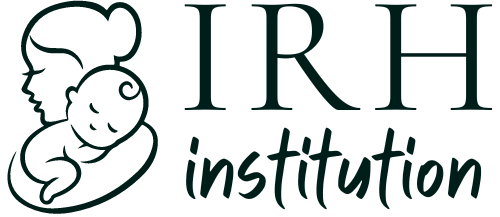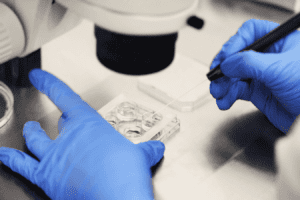Top Signs Married Couples Should Explore IVF Treatment
For many couples, starting a family is one of life’s greatest joys. But for some, the journey to parenthood doesn’t happen as easily as expected. If you’ve been trying to conceive without success, it may be time to consider visiting an IVF center. Understanding when to seek help can make all the difference in achieving a healthy pregnancy and bringing home a beautiful baby. Here’s what you need to know about when to visit an IVF center and how assisted reproductive technology (ART) can help you fulfill your dream of parenthood.
How Long Should You Try Before Seeking Help?
One of the most common questions couples ask is, “How long should we try to conceive naturally before considering IVF?” While every couple is unique, medical guidelines offer a helpful starting point:
- Under 35 Years Old: If you and your partner have been trying to conceive for 12 months without success, it’s a good time to consult a fertility specialist.
- 35 Years and Older: For women aged 35 and above, it’s recommended to seek help after 6 months of trying, as fertility naturally declines with age. Early intervention can improve your chances of conception (Practice Committee of the American Society for Reproductive Medicine, 2020).
Medical Conditions and Symptoms That Signal It’s Time
Even if you haven’t been trying for an extended period, certain medical conditions and symptoms may indicate it’s time to visit an IVF center sooner rather than later. These include:
- Irregular or Absent Periods: If your menstrual cycle is irregular or absent, it may signal an underlying condition such as polycystic ovary syndrome (PCOS) or hormonal imbalances that could make conceiving more difficult.
- Known Reproductive Issues: If you or your partner have been diagnosed with conditions like endometriosis, low sperm count, or blocked fallopian tubes, an IVF consultation is highly recommended.
- Recurrent Miscarriages: If you’ve experienced two or more miscarriages, fertility testing can help determine the underlying cause and provide a solution.
- Family History of Fertility Issues: A family history of reproductive issues may be another reason to visit an IVF center early in your journey.
What Happens During Your First Visit?
Your first visit to an IVF center doesn’t mean you’ll immediately start treatment. Instead, this initial consultation allows a fertility specialist to understand your medical history, assess your situation, and discuss the most suitable options for you.
- Fertility Testing: Both partners may undergo fertility testing to evaluate hormone levels, sperm quality, and the health of the reproductive organs. Common tests include blood work, ultrasound, and semen analysis.
- Personalized Treatment Plan: Based on your test results, your fertility specialist will create a personalized treatment plan. This might include lifestyle changes, medications, or more advanced treatments like intrauterine insemination (IUI) or in vitro fertilization (IVF).
Why Early Consultation is Key
Time is a critical factor when it comes to fertility. Research shows that women’s fertility declines significantly after age 35, and even more rapidly after age 40 (American College of Obstetricians and Gynecologists, 2014). Early intervention increases your chances of success, giving you a better opportunity to conceive with or without assisted reproductive techniques.
One study published in Human Reproduction found that couples who sought fertility help earlier had higher pregnancy rates and lower overall treatment costs compared to those who delayed their consultation (Practice Committee of the American Society for Reproductive Medicine, 2020). Visiting an IVF center doesn’t just open the door to advanced treatments—it also provides valuable insight into your reproductive health and the steps you can take to optimize your chances of a successful pregnancy.
The Emotional and Financial Benefits of Seeking Help Early
Trying to conceive can be an emotionally challenging experience. The stress of waiting each month can take a toll on both partners. Early consultations with fertility experts can help ease this burden by providing clear answers and a path forward. Many couples report feeling a sense of relief after their first visit, knowing they are taking proactive steps toward achieving their dream of parenthood.
Financially, the sooner you consult with an IVF center, the more options may be available to you. IVF isn’t always the first recommendation—some couples may achieve pregnancy with less invasive and less costly treatments, especially if issues are identified early.
Making the Decision Together
It’s important that both partners are fully engaged in this journey. Attending the consultation together ensures that both of you feel informed and empowered. Fertility challenges affect both men and women, and solutions often involve both partners. By working together, you increase your chances of success and ensure a supportive environment for the emotional aspects of fertility treatment.
Ready to Take the First Step?
At IRH we’re here to guide you through every step of your fertility journey. Our expert team of Fertility & IVF coaches is committed to providing you with the highest quality care, from initial consultation to successful pregnancy. We offer a range of education sessions that explain the treatments tailored to your unique needs, including IVF, IUI, fertility testing, and more.
Don’t wait to get the answers and support you deserve. Schedule your IVF coaching session today and take the first step toward making your dream of parenthood a reality.
References:
(Top Signs Married Couples Should Explore IVF Treatment)
American College of Obstetricians and Gynecologists Committee on Gynecologic Practice and Practice Committee (2014). Female age-related fertility decline. Committee Opinion No. 589. Fertility and sterility, 101(3), 633–634. https://doi.org/10.1016/j.fertnstert.2013.12.032
Bedrick, B. S., Anderson, K., Broughton, D. E., Hamilton, B., & Jungheim, E. S. (2019). Factors associated with early in vitro fertilization treatment discontinuation. Fertility and sterility, 112(1), 105–111. https://doi.org/10.1016/j.fertnstert.2019.03.007
Practice Committee of the American Society for Reproductive Medicine. (2020). Definitions of infertility and recurrent pregnancy loss: A committee opinion. Fertility and Sterility, 113(3), 533-535



